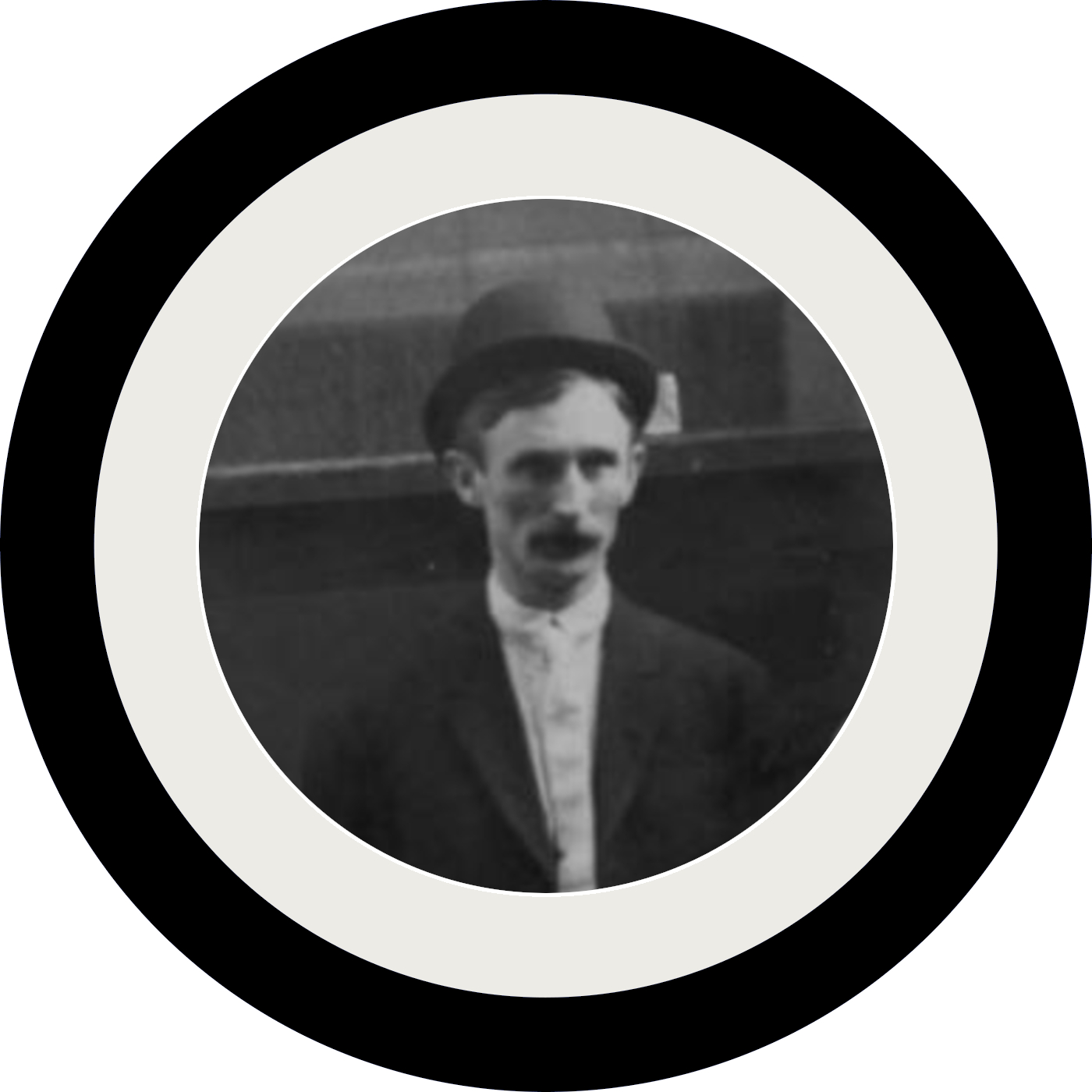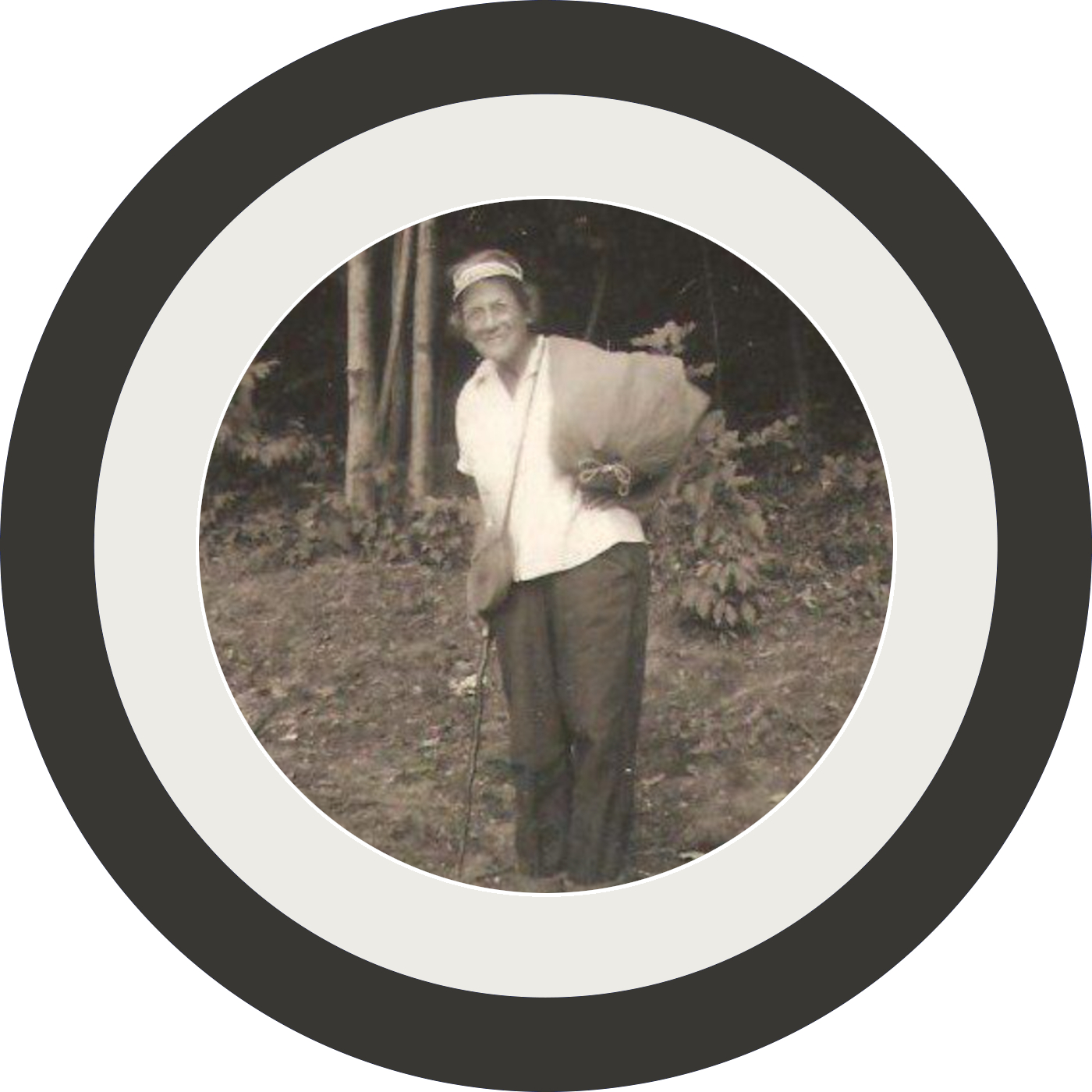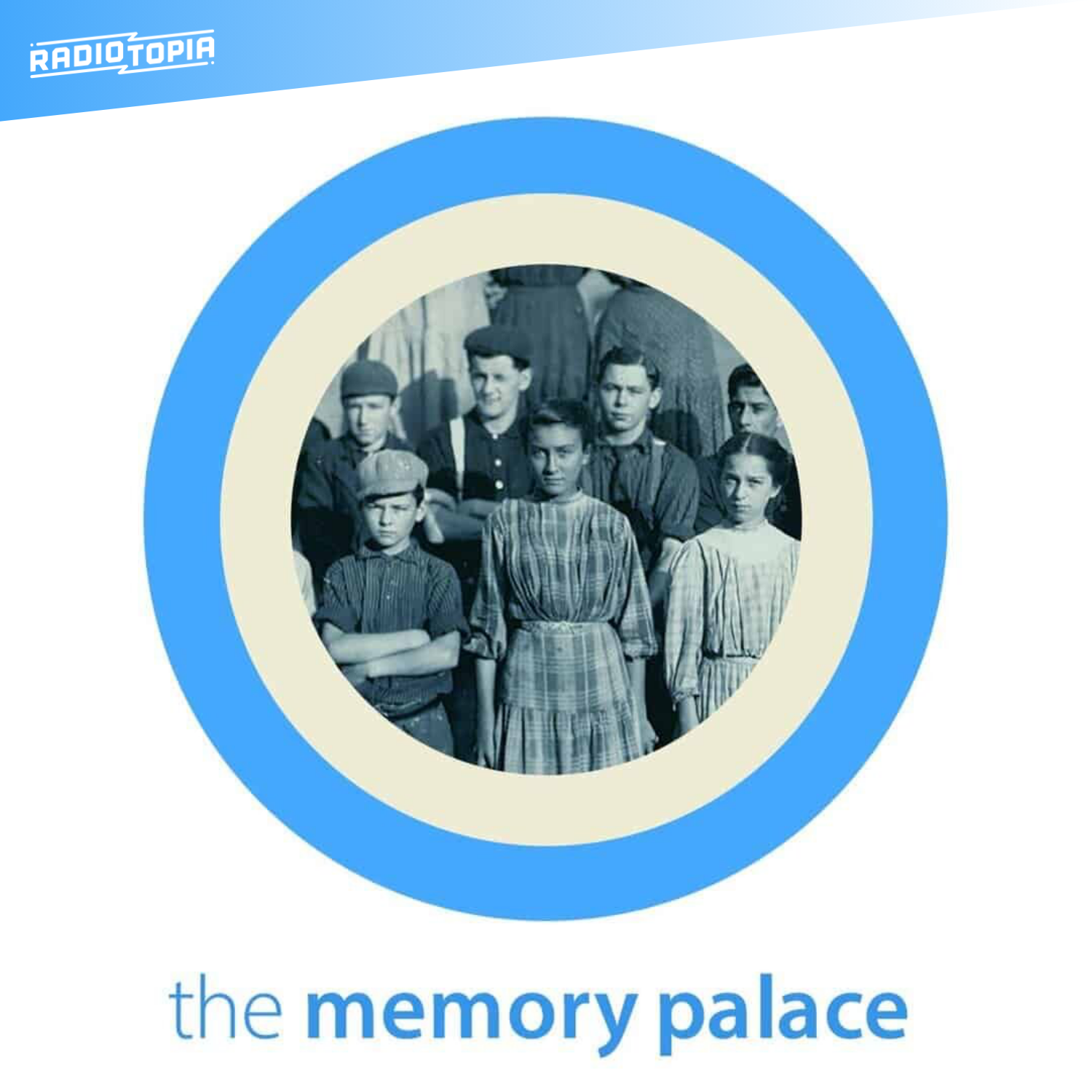Episode 236: The Times
Order The Memory Palace book now, dear listener. On Bookshop.org, on Amazon.com, on Barnes & Noble, or directly from Random House. Or order the audiobook at places like Libro.fm.
The Memory Palace is a proud member of Radiotopia from PRX. Radiotopia is a collective of independently owned and operated podcasts that’s a part of PRX, a not-for-profit public media company. If you’d like to directly support this show, you can make a donation at Radiotopia.fm/donate.
Music
- A couple by C. Diab: Tiny Umbrellas and Crypsis
- The beginning of Cats Cradle (Iris) by Hannah Epperson
- Dawning and Wind by Shida Shihabi
- A couple from Ceeys: Neighbour II and Union
Notes
- I really enjoyed reading both Lew Irwin's Deadly Times: the 1910 Bombing of the L.A. Times and America's Forgotten Decade of Terror, and Bread and Hyacinths: the Rise and Fall of Utopian Los Angeles, by Lionel Rolfe
- As an, at this point, long-time Angeleno, I highly recommend visiting the Hollywood Forever Cemetery.
Learn about your ad choices: dovetail.prx.org/ad-choices
Press play and read along
Transcript
Speaker 1 This episode of Memory Palace is brought to you by HelloFresh. Now you may have heard of HelloFresh.
Speaker 1
They send chef crashes recipes and fresh ingredients to your home, but this summer they made their biggest menu upgrade yet and it has been great. It is bigger.
HelloFresh has doubled its menu.
Speaker 1
You can choose from over 100 options each week. It is healthier.
They have an even healthier menu filled with high protein and veggie pack recipes.
Speaker 1 It is tastier, although it was really tasty before, but now you can get steak and seafood recipes delivered every week at no extra cost.
Speaker 1
There's three times more seafood on the menu now, and I have loved that. I have loved having all these seafood options.
And I like to cook, but I am no cook, you know? I'm just not.
Speaker 1
I'm not detail-oriented enough. I'm not organized enough.
I'm always forgetting something on my shopping list.
Speaker 1 I'm always using a tablespoon when it said a teaspoon, and then I'm wondering why something is too salty or sweet or, I don't know, gingery, but with HelloFresh, I'm cooking great meals where the fuss and the trouble and the details are all taken care of before it arrives at my door, leaving me just the pleasure of cooking and eating.
Speaker 1
HelloFresh is a blast. The best way to cook just got better.
Go to hellofresh.com/slash memory10FM. Now to get 10 free meals and a free item for life, one per box with active subscription.
Speaker 1
Free meals applied as discount on first box. New subscribers only varies by plan.
That's hellofresh.com/slash memory10 FM. Get 10 free meals and a free item for life.
Speaker 2 Support for this podcast and the following message come from Sutter Health.
Speaker 2 From life-changing transplants to high blood pressure care, Sutter's team of doctors, surgeons, and nurses never miss a beat.
Speaker 2 And with cardiac specialty centers located in the community, patients can find personalized heart care that's close to home. Learn more at Sutterhealth.org.
Speaker 1 This is the Memory Palace. I'm Nate DeMayo.
Speaker 1 They could suddenly control time.
Speaker 1 It changed everything.
Speaker 1 Time was that if they wanted to blow something up, they would have to throw a bomb themselves, which was dangerous beyond the obvious.
Speaker 1 If you survived the throwing and the blowing up, you would have to get away if you wanted to get away with it.
Speaker 1 But in the Civil War, a Confederate engineer had figured out a number of methods for attaching timers to incendiary devices. They were crude and unreliable, but they were inspiring.
Speaker 1 To militaries, to mining engineers, engineers, to saboteurs and murderers. And they got better.
Speaker 1 And by 1910, there were men, some unknown number,
Speaker 1 dozens, likely more, men whose job was to place time bombs.
Speaker 1 To travel the country, check into a hotel, build the bomb, sticks of dynamite, wires, an alarm clock, check out of the hotel, place the bomb, get on a train, and be long gone by the time it went off.
Speaker 1 John McNamara charged 200 bucks for this work.
Speaker 1 I do not know if that included expenses or not, or if he had to cover the trip to Los Angeles, or the hotel on 5th Street downtown, where he built the bomb for what would turn out to be the final job of his career.
Speaker 1
It was supposed to be routine. Shouldn't have been any more dangerous than any other mission.
Dynamite is quite stable, as explosives go. The wiring was simple enough.
Speaker 1 The clockwork was literally, metaphorically reliable. And men like McNamara who did this work more or less got to the point where the only real worry was that the thing might not blow up.
Speaker 1 That someone might find a bomb that had failed to explode, and then maybe the cops would start tracing things back to the people who hired them, but really, the cops didn't even seem to care anymore.
Speaker 1 People were blowing things up all the time then.
Speaker 1 Someone wanted to build something, the factory, a warehouse, a bridge. They wanted to do it on the cheap, they didn't want to pay union labor.
Speaker 1 Someone like John McNamara would ride into town, would wire up a time bomb, would place it at a construction site, set it to go off in the middle of the night when the workers wouldn't be around, and neither would the bomber, as he would likely be sound asleep on some train rumbling its way through the night.
Speaker 1 Leaving behind some blown-up construction equipment, building materials, lumber, what have you. And with it, a message sent particularly loud and clear to the developer.
Speaker 1 If you want this building to go up, you hire union men.
Speaker 1 It was highly effective.
Speaker 1 McNamara's brother was high up in the Bridge and Structural Ironworkers Union of Indianapolis, and it seems was behind many of the bombings that occurred around the United States right after the turn of the century.
Speaker 1 There were hundreds. Hard to believe now.
Speaker 1
They were often at ironworks. They happened so often, and the evidence left behind by these men on the move was typically so scant that the police scarcely lifted a finger.
J.J.
Speaker 1 McNamara was a true believer, as was his younger brother J.B.,
Speaker 1 and as were so many of the other men scattered around the country, waiting for word on where they would strike next. It was probably inevitable that someone would be sent to Los Angeles.
Speaker 1
It was, after all, where Harrison Gray Otis lived. There is no definitive answer as to what changed him.
Nothing in his biographies, no direct public statements.
Speaker 1 Nor is there any explicit evidence to help us determine the degree to which the fact of that change made him public enemy number one of the labor movement.
Speaker 1 But Otis was once a union man, before he rose to the rank of lieutenant general in the Union Army during the Civil War. Before that he was a journalist and a member of the Typographers Union.
Speaker 1 He was still on the rolls after the war ended, and stayed a dues-paying member when he owned the Los Angeles Times.
Speaker 1
All the way up, it seems, until the point that he locked out members of his own union in an effort to break them. That's when Otis changed.
He was an owner then. Maybe it was as simple as that.
Speaker 1 But from then on, 1890, he was one of America's most prominent and effective anti-labor activists, working tirelessly to unite business owners in the newly booming Los Angeles, in the cause of suppressing wages and breaking unions wherever they deigned to try to form, especially at his own shop.
Speaker 1 which for decades remained the only non-union newspaper in the region,
Speaker 1 and whose pages during during his tenure were filled with sensational stories and strident editorials often written by Otis himself, designed to scare his readership away from the labor movement. J.B.
Speaker 1 McNamara thought the building would be empty. That was always the plan.
Speaker 1 So he slipped into an alley where they stored barrels of ink, slipped the bomb in a dark corner, and was on the train out of town when it blew.
Speaker 1 He didn't know that more than a hundred people were there working late.
Speaker 1 Didn't know about the special edition that had been planned for the next afternoon to publish the results of a big auto race. The building was typically empty at 1 in the morning.
Speaker 1
But it wasn't when the bomb went off. And what was supposed to be a modest blast wasn't.
It triggered the ink barrels, which were oil-based.
Speaker 1 And another larger explosion from a gas leak that the McNamara's couldn't have known about, that Otis would say he didn't know about.
Speaker 1 Even though workers told reporters for other papers that they'd been complaining about it for weeks, had had to leave all the windows open to try to get rid of the smell.
Speaker 1 The workers who'd survived, the workers who had been trying to organize, the ones who weren't among the 21 who'd been killed, trapped in the fire that tore through the building, or who died in the blast, like the typesetters men like Otis had once been before becoming an owner, who were thrown against walls, torn to ribbons by metal letters turned to shrapple.
Speaker 1 We don't know when J.B. McNamara knew that the job had gone wrong.
Speaker 1 If he had stuck around in L.A., he could have picked up a special issue of the LA Times that very morning, a second morning edition that rolled off a second printing press that Otis owned just blocks away.
Speaker 1 where other men would place metal letters and trays that would form the words that would tell the city about their lost comrades.
Speaker 1 There would be a lot of words in the Times and in papers around the world in the following months. It was perpetually front-page news.
Speaker 1 There was an extended period where many of Otis' opponents were certain that he had had the bombs planted himself.
Speaker 1 A false flag operation to further his anti-union cause.
Speaker 1 That doesn't seem to be true.
Speaker 1 There was a bomb found at Otis' house, and another at the home of the Secretary of the Merchant and Manufacturers Association, a group that Otis founded to keep unions out of LA.
Speaker 1 There were rumors rumors that the police planted those bombs. And that wasn't proven, but does fit with the LAPD's MO at the time.
Speaker 1
We will likely never know the truth. Eventually, J.B.
McNamara confessed. To the bombing at the Times, he said he didn't know anything about the bombs found at the houses.
Speaker 1 He said he hadn't intended to hurt anyone, but nonetheless regretted that Otis hadn't been there when it went off.
Speaker 1
He would spend the rest of his life in prison. His older brother would be there with him too in San Quentin, though he only had a 15-year term.
Three other accomplices did time too.
Speaker 1 And there were dozens of other arrests around the country as police began to care about the bombings.
Speaker 1 The one at the LA Times changed everything for a while. Put the labor movement on its back heels for two whole decades.
Speaker 1
There is a monument in the Hollywood Forever Cemetery in L.A. It's not far from where Jane Mansfield is buried.
Two of the Ramones.
Speaker 1 Douglas Fairbanks, Mel Blanc, and plenty of silent movie stars whose names likely won't mean anything to pretty much anyone these days.
Speaker 1 The monument has a bronze eagle on top Otis was into eagles, and it lists the names of the men who died.
Speaker 1 It calls them martyrs who died in the cause of liberty, as defined by Otis, as the freedom not to be in a union.
Speaker 1 It calls it the crime of the century, which is true, probably, at least for a brief time. It says that the men and their deaths would never be forgotten.
Speaker 1 This episode of The Memory Palace was written and produced by me, Nate DeMayo, in September of 2025. This show gets research assistance from Eliza McGraw.
Speaker 1 It is a proud member of Radiotopia, a network of independent artist-owned listener-supported podcasts from PRX, a not-for-profit public media company, which is fighting the good fight, incidentally, in these outrageously difficult times for public media.
Speaker 1 From time to time, I like to tell you about some of my fellow Radiotopia shows and today I get to tell you about a brand new one, a brand new project that honestly is so necessary in the medium in which I work.
Speaker 1 Podcasting and radio as an art form
Speaker 1 has like no processes of canonization, has like no halls of fame or museum retrospectives.
Speaker 1 And for the most part, particularly when it comes to documentary and reporting, wonderful work just kind of flashes for a moment, and then that moment passes and it just gets lost to history, I guess.
Speaker 1 And in that, this new show called Selects
Speaker 1 is long overdue.
Speaker 1 If you subscribe to Selects, you will get every two weeks some of the greatest audio stories that have ever been made, full stop, from all-time greats in this field that I am in, colleagues and heroes of mine.
Speaker 1
If you love great audio stories, you are going to love Selects. Literally some of the best stories ever told.
Go to radiotopia.fm to find out more about it and all the Radiotopia shows.
Speaker 1 You can follow me on Blue Sky at Nate DeMayo,
Speaker 1 on Instagram and Threads at the Memory Palace Podcast, or on Facebook at Thememory Palace. You can always drop me a line as well at nate at thememorypalace.org.
Speaker 1 Talk to you again.
Speaker 1 Radiotopia
Speaker 1 from PRX





